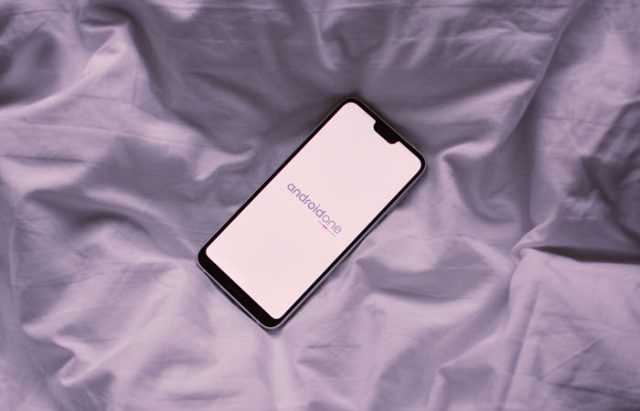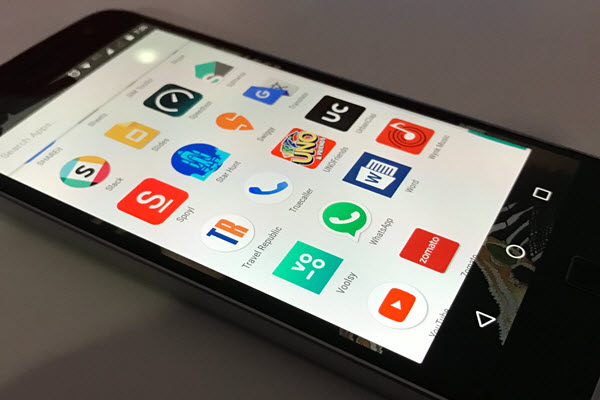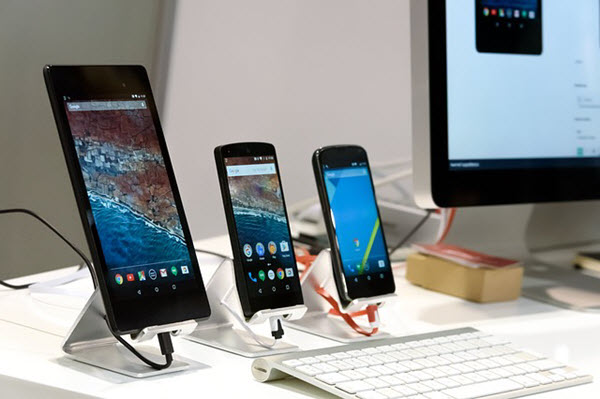13 Security Tips for Your Android Phone
By Dumb Little Man
May 6, 2019

You most likely use your phone much more than you use any other device, and it’s probably loaded with your personal information. With this in mind, security should be at the top of your priority list. We want you to keep your Android device secure, and this is why we’ve rounded up some of the easiest and best security tips available. You may want to consider applying them to your phone right now!
Only Install Apps from Google Play

Did you know that there are dozens of unauthorized apps available from unsavory vendors? They can steal your information, take over your Gmail account, and load your device with malware. To prevent this from happening, only install apps from the Google Play store because they’re verified as safe.
Consider Using a VPN
When you browse, a VPN acts like an extra security layer. It makes all of your sensitive data and passwords pass through an encrypted channel between your device and the website. This makes it extremely hard for anyone to get their hands on, and it reduces your risk of identity theft. If you’re looking for a good VPN, try VeePN. It is reliable, user-friendly, and has a lot of cool features.
See Also: 11 Cool Ways to Use VPN
Enable a Screen Lock
The last thing you want is for someone to pick up your phone and start going through it just because they can. You can choose from patterns and pins with patterns, which are generally more difficult to crack. Set it up, so your screen automatically locks after a few minutes of being idle, and don’t use an easy pin like 1234.
Avoid Sending Sensitive Information over Public Networks
Most cities have public Wi-Fi hotspots everywhere. This makes it very difficult to avoid using them. If you can’t avoid using it altogether, use it sparingly. Also, never put your sensitive data out over a public Wi-Fi system. Hackers could be monitoring it and steal it before you realize it.
Install an Antivirus App
Even safe usage won’t always prevent a malware infection on your Android device. Luckily, you can help reduce the risk of this happening by installing an antivirus app. There are dozens to choose from, and you can even get completely free versions. While they may not be as robust as some antivirus software, it’s better than not having one and going unprotected.
Check Routinely for Security Patches
Yes. Updates can be a very boring part of having a phone. However, updates are essential because this is how Android’s newest security patches get on your device. Google releases these security patches once a month. You can look when your last security update was by going to your settings, clicking Security and Lock Screen, and clicking Security Update.
Switch off Unneeded Connections
Do you really need to have Bluetooth, GPS, or Wi-Fi constantly connected? The answer is no, and they pose security risks. Not only does this help to conserve your phone’s battery, but it also stops you from accidentally connecting to public Wi-Fi and being tracked by GPS.
Turn on Two-Step Verification
Google Mail offers two-step authentication or verification, and it’s a good idea to turn this on to increase your mail’s security. Whenever you or someone tries to log into your Gmail account, a text message will be sent to your phone. It’ll either ask you to input the code or click yes if it’s you.
Don’t Follow SMS Message Links
You should treat your phone with the same common sense that you approach other devices you use. Don’t open SMS message links because they’re very rife with scams. Your bank will never send you an SMS message that says to follow code and input your details, and your favorite apps won’t ask you to pay a small fee to continue using them if they’re free to start with.
Enable Android’s Device Manager Service
Android phones come with the device manager. This service can help you if you lose your phone or if it is stolen. It can make your phone ring, lock it, or turn on GPS so you can locate it. Also, it can remotely wipe all of your data. However, this should be a final solution because it takes away the ability to find your phone again.
Check and Tweak Your App Permissions
Apps used to get free reign when you downloaded them. You had to okay it for them to be able to access various parts of your phone before you could download them. Android 6.0 Marshmallow changed this. Now, you can go into App Permissions and tweak what the apps can and can’t do on your phone.
Routinely Update Your Apps
The best thing you can do is turn on automatic updates and let your apps update themselves each time new software comes out. If you don’t want to do this, check for updates once a week and install them. This will ensure that all of your apps keep up to date with the latest and most secure software and patches.
Upgrade to a New Phone

For Android users, you can stop getting security updates in just as few as 18 months after you purchased your phone. Google also cuts off security updates for devices at around month 30. This means that you want to get a new phone every two years at most to stay up-to-date.
Bottom Line
Android security is just as serious as any other device you may have. It’s essential that you follow our 13 quick tips to make sure that your personal information stays secure for as long as you have your phone.
Dumb Little Man
At Dumb Little Man, we strive to provide quality content with accuracy for our readers. We bring you the most up-to-date news and our articles are fact-checked before publishing.


